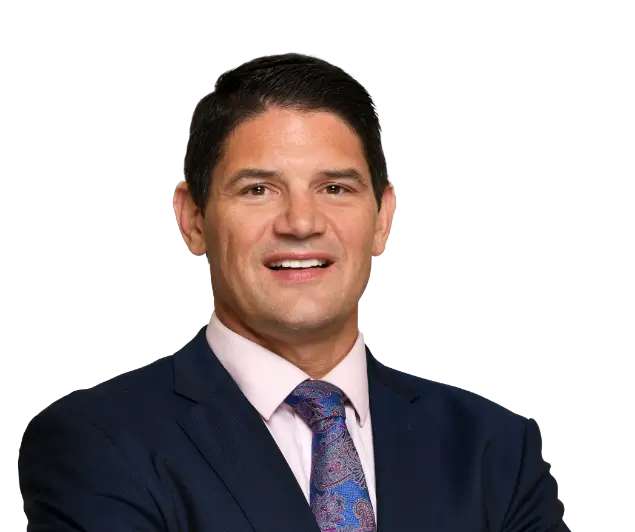
Denver Spousal Maintenance Attorney
At ELKUS & SISSON, P.C., our team of seasoned professionals brings a wealth of experience to navigating complex legal challenges with precision and dedication.



There’s no way around it—divorce can be expensive. You’re moving from one household to two, with no automatic increase in income. Both parties must be able to support themselves post-divorce, and figuring out how to make that happen can be a challenge. You and your spouse’s finances are likely intertwined to a significant degree—few people enter into financial agreements like mortgages, car loans, and retirement plans with a plan to divorce. When both parties earn enough income to support themselves, this transition can be relatively pain-free, if still a major adjustment. In other scenarios, it’s a bit more difficult.
Spousal support (aka alimony) can help a lower-earning spouse bridge the gap between what they have and what they need to get by. If you’re asking for spousal support or being asked for spousal support, it’s important to know your rights.
Greenwood Village Spousal Support Lawyers Serving Denver
Elkus & Sisson, P.C. are spousal support attorneys in Greenwood Village located just a short drive from downtown Denver. Our address is 7100 E Belleview Avenue, Suite 101 Greenwood Village, CO 80111 (open in Google Maps). Call us today at (303) 567-7981 or fill out a contact form and we will call you to schedule an appointment to discuss your family law needs.
When Spousal Support is Awarded
Spousal support is intended to “level the playing field” and to help both parties in a divorce go on to be financially stable and able to provide for themselves. Two equal-earning spouses are already on equal financial footing, so spousal support may not be recommended or awarded. However, when one spouse earns a high income and the other earns a low income or none at all, it is important to address that disparity, especially in longer term marriages.
In many cases, a spouse who earns little to no income has made other sacrifices for the sake of the marriage. Their work as a stay-at-home parent and homemaker, for example, may have allowed their spouse to build the successful career they now have. A spousal maintenance agreement compensates them for these sacrifices and puts them on the path to becoming self-sufficient.
Types of Spousal Maintenance in Colorado
There are multiple types of spousal maintenance in Colorado, depending on where you are in the divorce process and what is outlined in your agreement. Temporary maintenance may be the first time you discuss spousal support, as it’s paid after separating but before the divorce is finalized. During that time, the lower-earning spouse still needs to make ends meet, put gas in the car, and feed themselves. Temporary maintenance is a short-term solution until the final divorce hearing. If the parties cannot agree to temporary maintenance, then either party can ask for a temporary orders hearing which is an additional hearing that is shorter and to address temporary issues so the parties can have Orders and some certainty while the divorce is pending.
For long term maintenance once a divorce decree is entered, the Courts will now use a maintenance worksheet which is only an advisory guideline but can help the parties resolve the issues without going to court. A court has discretion to award maintenance as it sees fit and will take into consideration the length of the marriage, parties’ income, and other factors such as the needs of the party seeking maintenance and the ability to pay of the spouse from whom maintenance is requested. The Courts will also consider the age and work experience of both parties and the standard of living the parties enjoyed during the marriage, among other factors. Parenting and homemaking work is valuable, even if it is not financially compensated at the time.
How to Calculate Payments
Unfortunately, there aren’t always quick-and-easy calculations for spousal support in Colorado. However, the state does follow a basic formula to come up with a starting point. The formula works for couples that were married for at least three years and who currently earn $360,000 or less per year.
The calculation subtracts half of the lower-earning spouse’s income from 40% of the higher-earning spouse’s income. The amount is capped at 40% of the couple’s combined monthly income. The resulting number is the amount of spousal support to be paid each month; the duration depends on how long the couple was married.
Note that this amount is not necessarily the final amount that will be awarded in your case. Numerous factors will be taken into account, including:
- Both parties’ financial resources
- How marital property was distributed
- The lifestyle needs of both spouses
- Each spouse’s income and ability to earn an income
- The length of the marriage
- Each party’s age and overall health
- Contributions made to the marriage
- How long it will take the lower-earning party to become self-sufficient
These factors could increase or decrease the final amount paid.
Seeking or Contesting Alimony
If you believe you are entitled to spousal support or you don’t think you should have to pay spousal support, it is critical to talk to a Denver alimony attorney as soon as possible. There are serious financial implications involved in the decisions you make, and you must have a legal advocate ready to fight for your best interests. The earlier you hire a lawyer, the more time they have to build a strong case for you to receive or not pay spousal support.
Why You Should Choose Elkus & Sisson, P.C.
When you decide to work with Elkus & Sisson, P.C., your case will be handled with the highest level of expertise and care. With over three decades of experience in family law, our team has an in-depth understanding of both the legal and human sides of these issues. We bring a compassionate and client-focused approach to every case, knowing that the outcome will play a significant role in your financial stability for years to come. We are committed to advocating for you every step of the way.
Contact Us to Start Your Case
If you’re concerned about the role of spousal maintenance in your divorce or you’re seeking a modification, it’s time to talk to the team at Elkus & Sisson. Reach out online or call us at (303) 567-7981 to learn more about how we can help you.
Top Rated Lawyers in the State of Colorado

Common Types of Family Law

Divorce
Divorce
In Colorado, the laws surrounding divorce can be difficult to navigate. You do have the option to work out an uncontested divorce between you and your spouse. If this is not possible then it is important to find an experienced divorce lawyer. Even if you and your spouse are currently cooperating while navigating divorce, discussing your options with an attorney can be helpful. Divorce attorneys provide several services that will help you move on with your life. Things you will need to address when getting divorced include the division of property and assets, determination of allocation of parental rights (“child custody”) (if applicable), and spousal maintenance payments. Our family attorneys will also be able to provide you with the needed legal advice during the divorce. There are several things that you should and should not do to help you strengthen your case—that’s one reason we recommend talking to an attorney as soon as the divorce is being considered. In the gap between deciding on divorce and hiring an attorney, this “learning phase” will allow you to avoid making critical mistakes that take additional time, work, and money to fix. Protect yourself from the very beginning with our team’s representation.
Find out more information about the services our divorce attorneys provide.

Spousal Support
Spousal Support
Some divorce settlements require one spouse to pay spousal support to the other. Once referred to as alimony, this is now called spousal maintenance/support. Spousal support seeks to give a lower-earning spouse financial stability if there is a major earning disparity and if usually is considered if the marriage is at least 3 years.For example, divorce cases involving a high-earning spouse and a stay-at-home parent are likely to involve spousal support. The length of your marriage is also a contributing factor; someone married for a very short period will likely not pay or be paid alimony upon the end of the marriage but it is always in the court’s discretion However, an individual who was married for 20 or more years before divorcing could find themselves paying or receiving lengthy or permanent spousal support, which only terminates upon the death of the receiving party or remarriage of the receiving party.
Learn more about spousal support and how our firm can help you.

Child Custody
Child Custody
Allocation of parental Responsibilities (“Child custody”) is a subject that divorcing couples will need to confront. It can be emotionally draining and very complex. There are several factors that will help the court decide on the custody and visitation rights of parents and/or grandparents. Our family attorneys are experienced in the areas of:
- Visitation and parenting time
- Father’s rights
- Grandparents’ rights
- Parenting Time modification
If you are going through a divorce you may need to learn more about our services relating to child custody battles.

Child Support
Child Support
Doing what is in the best interest of the children should be at the heart of every child custody case. The Courts utilize a child support worksheet which demonstrates each party’s financial responsibility for the children (child) based on income, overnights and other factors. Our family attorneys will help calculate the needs based on financial records and statements to make sure your children are taken care of. Extensive medical care needs, extracurricular activities, childcare expenses, and other factors can increase or decrease child support. In most cases, the party who has the child the majority of the time receives child support paid by the parent with parenting time.
Explore our child support services to find out how we can help you.

Property Settlement
Property Settlement
To get the best results of property settlement cases during a divorce you need to have a skillful attorney with extensive experience. Property division can be very complex and exhausting when you start to include multiple properties, stocks, bonds, vehicles, etc… Assets that are considered “marital” and “non-marital” can also be complicated. Property that was acquired during the marriage will most likely need to be considered “marital” and things that were accumulated outside the marriage are most likely “non-marital”. It’s especially important to work with an experienced attorney if you and your spouse have a large and varied portfolio of assets. A fair division of assets depends on the accurate identification and valuation of each asset. Other situations also call for an attorney with extensive experience, including situations where you suspect that your spouse is attempting to hide assets or divorces involving hard-to-trace assets like cryptocurrency and NFTs.
Find out more about the services our property settlement attorneys provide.

Fathers' Rights
Fathers' Rights
Custody laws vary from state to state. This can have a significant effect on custody battles for fathers. According to Colorado law parenting time is based on what is in the best interests of the minor children. The Courts want the parties to be involved and to have joint decision making, when it’s appropriate and in the children’s best interests. Many fathers go into divorce or custody battles assuming that the odds are already against them and that the court will automatically side with the mother which is not the case and not the law. The court recognizes the importance of both parents in a child’s life. Whether you’re establishing your rights as a divorcing father or during a “custody” battle, know your rights and don’t give up before you’ve even started.
If you are a father involved in a custody battle then have a look at our guide that includes eight tips for fathers going through a child custody case.

Grandparents' Rights
Grandparents’ Rights
Grandparents often have special relationships with their grandchildren that can make these cases complex and highly emotional. You do have to meet certain criteria to qualify for grandparents’ rights in Colorado. You may be able to seek visitation with your grandchildren if their parent passes away and the other parent is keeping them from you, a non-parent currently has custody, or the child’s parents have divorced and your time with the child has been revoked.
If you need to know what your rights are as a grandparent relating to visitation of your grandkids then read our information on grandparents’ legal rights.

Adoptions
Adoptions
Adoption is a beautiful way to give a child a home and grow your family. No matter which type of adoption you are pursuing, it is crucial to work with an attorney who can navigate this complex area of family law. There are several types of adoptions recognized in Colorado. A foster adoption may occur after a biological parent’s rights are legally terminated and the foster parent chooses to adopt the child in their care. International adoption generally requires assistance from attorneys in both countries. Families pursuing private domestic adoption need a lawyer to protect their best interests as they seek to finalize their adoption. When a child is adopted by their grandparents, aunts or uncles, siblings, or extended family members, it’s referred to as kinship adoption. Stepparent adoption allows a stepparent who has taken on an important parental role to adopt their stepchild if the child’s biological parent has given up their rights or had their rights terminated. Adoption is complex, and there are many ways that the smoothest adoption can fall apart. Find out how our firm can help you with your adoption case.
Learn More About Adoptions

Marital Agreements
Marital Agreements
When you get married, divorce is an impossible thought. But for nearly half of all marriages, divorce is the eventual outcome. Marital agreements, more commonly known as prenuptial and postnuptial agreements, are contracts that can protect both parties in the event of a divorce. It’s important to work closely with an attorney in the drafting or review of these documents. You want to ensure that your best interests are protected, but you also want a legally enforceable contract. One-sided or vague marital agreements can get thrown out.
Learn more about your marital agreement options.

Family Law Violations
Family Law Violations
Having an agreement isn’t always enough. If you have a combative or uncooperative ex-spouse or co-parent, you could have years of family law violations to deal with. Refusing to pay for their share of medical bills, not paying spousal or child support, withholding your child at exchange time, and otherwise going against the clear terms of your agreement are issues that must be addressed. Let us help you find solutions to your ex’s family law violations.

Common Law Marriage
Common Law Marriage
Most states don’t recognize common law marriage, but Colorado does. It’s a complex analysis that does not rely on just one factor but a totality of factors and is in the discretion of a court to decide whether a common law marriage exists. Some factors include: whether a couple lived and held themselves out as a married couple, engaged socially with others as a married couple, received benefits for the other, and purchased property together, paid joint taxes, as well as many other factors. However, common law marriages present unique legal challenges, particularly when a couple splits up or has disputes about the status of their relationship. Our firm is here to help you with your concerns about your common-law marriage.




